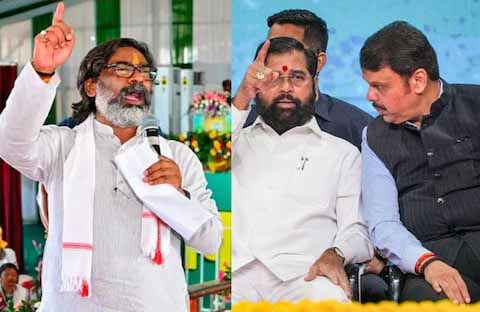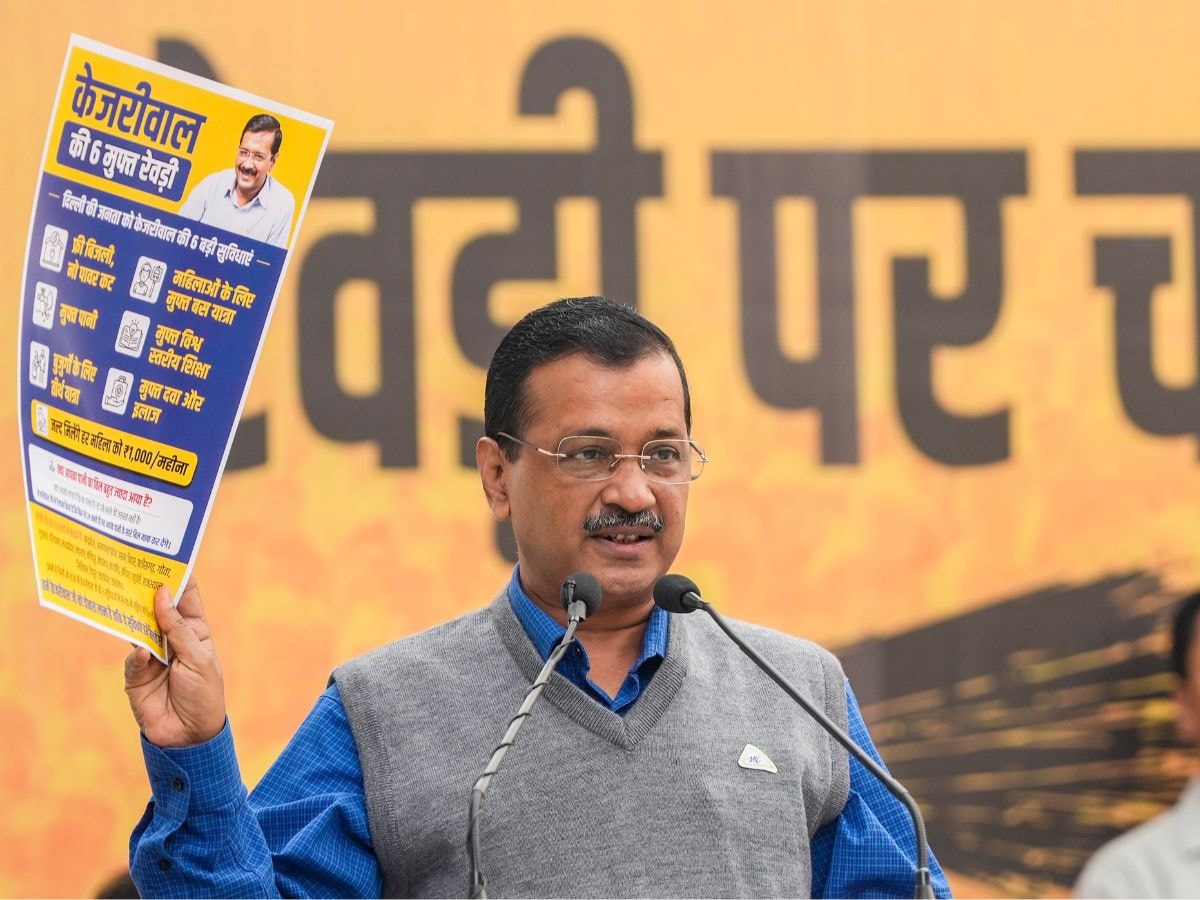
The results of the Maharashtra and Jharkhand assembly elections have come. The results of both states are surprising. In Maharashtra, the BJP did an unprecedented performance of 132 seats, which even it did not expect. In Jharkhand too, the ruling Jharkhand Mukti Morcha (JMM) has returned stronger than before. Apart from the 'common element' of surprise present in the election results of both the states, they also establish some trends. Some of these trends are also dangerous in the long term. Here we will talk about those trends that have been proven right again and again in the past few elections and have also proved right in the elections of these two states.
First of all, let's talk about 'rewards'.
These elections have also proved that the parties have found the key to their victory in the 'rewards' distributed to the public. In this too, giving money directly into the account has become a kind of guarantee of getting votes. There is a competition among the ruling parties to get votes by creating a new voter class called 'beneficiary'. The announcement of the central government to continue the free ration scheme till 2025 is considered a masterstroke in this direction. This competition is continuously increasing at the state level as well.
In the elections of many states held a year before the elections in Maharashtra and Jharkhand, we saw that the leaders made a lot of promises of free things or facilities for the public. Madhya Pradesh (November 2023), Chhattisgarh (November 2023), Rajasthan (November 2023), Telangana (November 2023), and Haryana (October 2024), many promises were made everywhere, from depositing cash directly into the account to free electricity, loan waiver, cheap cylinder, cheap loan, etc. Many years ago, Arvind Kejriwal had inspired the leaders to follow this path by coming to power in Delhi on the promise of free electricity and water.

Such announcements by governments/parties put a strain on the government treasury,, and its direct impact is seen in the form of cuts in development work. In the long run, this will also trap citizens in a debt trap. Its greater impact will be on the middle class, or rather on those who remain outside the ambit of the benefits of such schemes. In such a situation, discontent will increase among them, which can also take a dangerous form.
No freedom from polarization
These elections have also proved that no matter which election is held, wherever it is held, there will be an attempt to polarize Hindus and Muslims. The trend of mobilization based on caste in elections has been old, but in the last few decades, the trend of mobilization based on communalism has started.
In every election, its more dangerous form has been seen than the previous one. In this era of social media, polarization has started happening beyond the limits of rules.
As we saw in the Jharkhand elections, how videos showing Muslim faces were made and circulated on social media. After the complaint, the Election Commission took action, but by then the 'work' was done.
Every election is different.
Amidst the atmosphere being created for one country, one election, the results of the assembly elections of Jharkhand and Maharashtra also proved that every election is different. The parties that performed well in the Lok Sabha elections in Maharashtra have now been defeated. Those who were defeated then have now come first in the race.
In both the states, BJP, with the help of central leaders, ran a campaign on almost the same core issue. However, the results were completely different for it in both the places. Slogans like 'If we divide, we will be cut off' or 'If we stay together, we will be safe' were used in both the states, but it cannot be said whether its effect was the same in both the places or it was equally ineffective.
A party run by family and company is not sustainable.
A party run by one person or family does not last long, this election has proved this trend as well. In Haryana, we saw the fate of the party of the Lal or Chautala family. Now in Maharashtra, we are seeing the fate of the party of Uddhav Thackeray or Sharad Pawar. Sharad Pawar's NCP got just 10 seats, while Ajit Pawar's group won 41 seats. Shinde Sena got 57 seats, while Uddhav Sena was reduced to 20. The elegy of Raj Thackeray's party has already been read.
More respect for women as voters
Even if women are not given much participation in politics, they will have to be given more importance to get votes. The number of women MLAs in Maharashtra this time (22) has decreased by only two from the last time. This time the maximum number of women MLAs have been elected in the 81-member assembly of Jharkhand. Still, their number is only 12. That is 15 percent. But women voters are almost half.

In such a situation, whether it is Jharkhand or Maharashtra, both places have made promises and provided facilities keeping them in mind. Be it Maharashtra's Ladki Behen Yojana or Jharkhand's Mainiya Yojana, both are for women only. The promise of cheap cylinders is also made mainly by keeping women voters in mind. Women voters are at the center of many schemes of the central government including Ujjwala Yojana, Drone Didi Yojana, and Lakhpati Didi Yojana.
Compared to the last assembly elections in Maharashtra, this time the number of women voting was six percent more. Before this, only once such a large number of women had come to the polling booth. It is believed that it was the effect of the Ladki Behen Yojana that women voted in large numbers.
In Jharkhand, too, more women voted than men in 85 percent of the seats. There are only 12 seats where men voted more than women.
Exit polls are just for nothing.
The election results of Maharashtra and Jharkhand also proved that exit polls are just presented as an 'item' of the election show on TV. Almost all the exit polls failed once again. In such a situation, those who conduct exit polls and tell their results will also have to think whether they need to think afresh about it.

 Desk
Desk Share
Share

_939839210.jpg)




